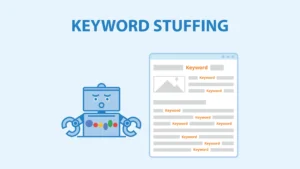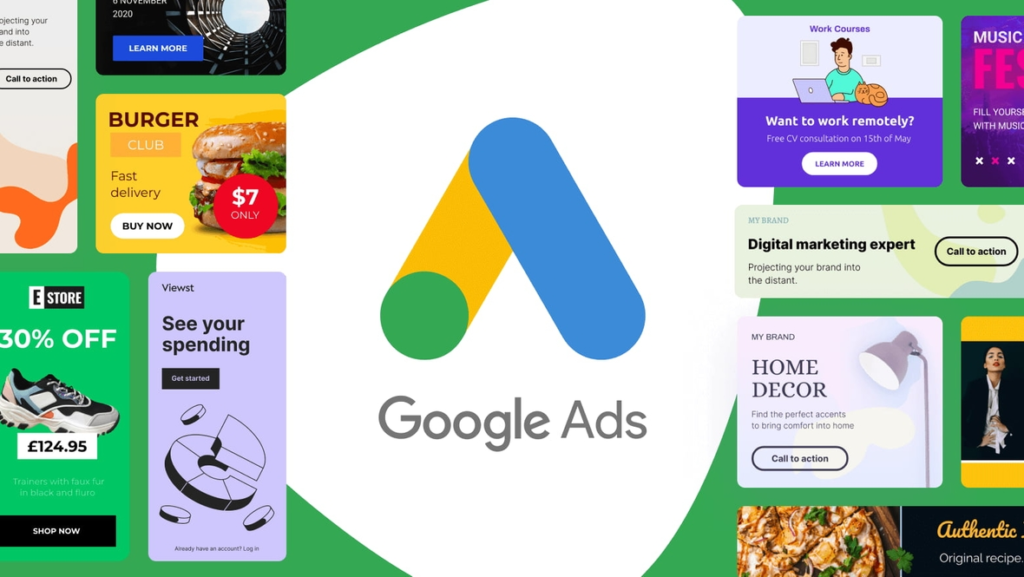Google Ads is one of the most powerful digital marketing tools available, helping businesses reach the right audience at the right time. However, without the right strategy, even the best Google Ads campaigns can underperform, wasting budget and missing potential conversions.
To help you maximize your Google Ads investment, we’ve compiled the most common keyword-related mistakes advertisers make and how to fix them. Let’s dive in!
Neglecting Keyword Research

Keyword research is the foundation of any successful Google Ads campaign. Without proper research, you risk targeting the wrong audience, leading to low click-through rates (CTR) and wasted ad spend.
Fix:
- Use tools like Google Keyword Planner and Semrush to find high-performing keywords.
- Focus on long-tail keywords (e.g., “affordable running shoes for women”) to attract high-intent users.
- Analyze competitor keywords to identify gaps in your strategy.
Not Using Keyword Match Types

Google Ads offers different keyword match types that determine how closely a user’s search must match your keywords for your ad to show.
Fix:
- Use a mix of broad, phrase, and exact match keywords for better targeting.
- Monitor broad match keywords carefully and pair them with negative keywords.
- Regularly analyze performance and adjust match types based on results.
Overlooking Negative Keywords

Negative keywords help prevent your ads from showing for irrelevant searches, saving your budget and increasing ad relevance.
Fix:
- Add negative keywords to filter out unwanted traffic.
- Regularly review your Search Term Reports to identify irrelevant terms.
- Use phrase and exact match negative keywords to fine-tune targeting.
Relying Only on Broad Match

While broad match keywords can expand your reach, they can also lead to irrelevant clicks and high costs if not managed properly.
Fix:
- Combine broad match with negative keywords to avoid irrelevant traffic.
- Use phrase match and exact match keywords for more precise targeting.
- Continuously track and refine your keyword strategy.
Not Targeting Branded Keywords

Branded keywords (your company or product name) ensure that potential customers find you instead of competitors.
Fix:
- Bid on your brand name to prevent competitors from taking your traffic.
- Use branded keywords to enhance credibility and improve conversion rates.
- Consider targeting competitor-branded keywords ethically to attract their audience.
Keyword Stuffing

Stuffing your ads with excessive keywords can make them look spammy and lower ad quality, affecting performance.
Fix:
- Write compelling, clear ad copy that highlights your unique value proposition.
- Integrate keywords naturally without overloading your text.
- Focus on user intent and strong CTAs (Call-To-Actions) to drive clicks.
Ignoring Search Term Reports

Search Term Reports provide insights into what users are actually searching for, helping refine your keyword strategy.
Fix:
- Regularly analyze Search Term Reports to optimize your keywords.
- Identify new keyword opportunities and refine existing ones.
- Use data-driven adjustments to increase Quality Score and lower CPC.
Conclusion
Avoiding these common Google Ads mistakes can significantly improve your campaign performance, increase ROI, and drive more conversions. Chic Media specializes in crafting highly effective Google Ads strategies tailored to your business needs.
Looking for expert Google Ads management? Contact Chicmedia today for a free consultation and take your advertising efforts to the next level!

